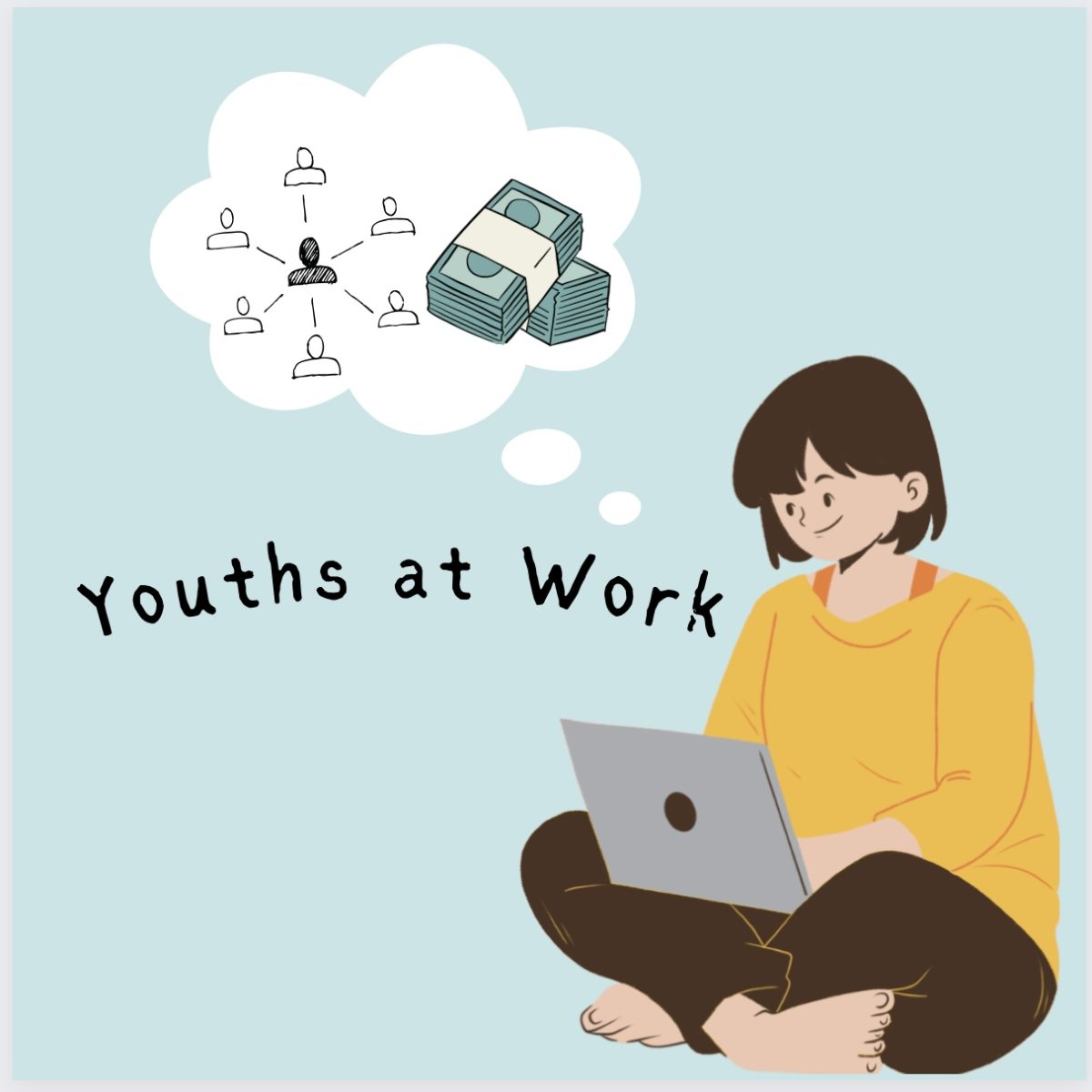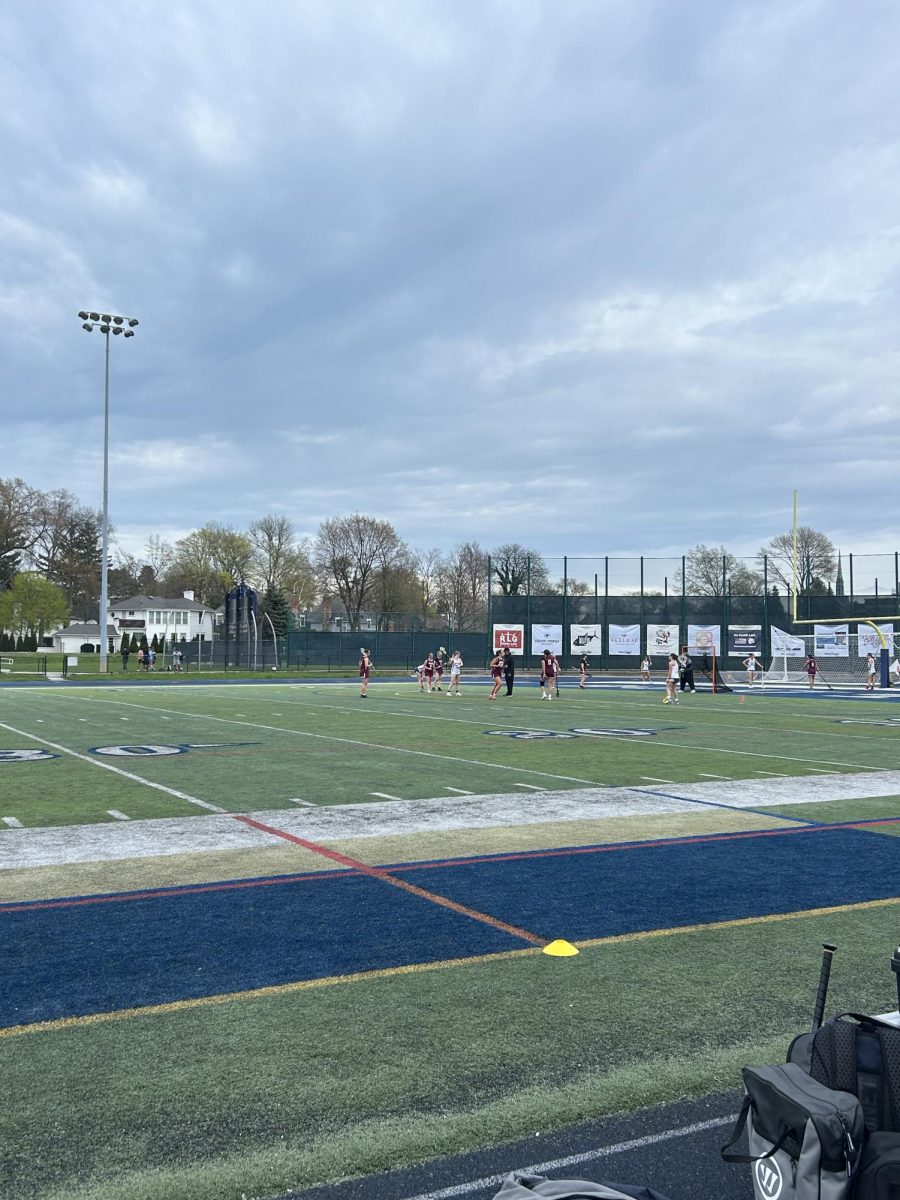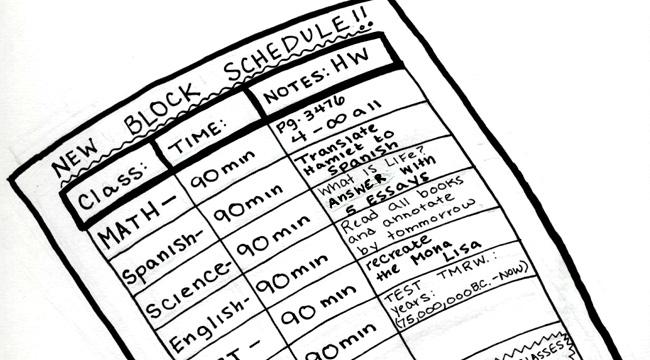After months of research, survey and discussion regarding a possible change to the school day schedule, the 21st Century High School Review Team will likely make a recommendation to the School Board on Monday, Feb. 25.
This committee made some solid recommendations to the Board last month on numerous concerns, but any suggestion to even consider overhauling the current schedule is questionable. The committee’s purpose is to help students, and changing to a block schedule would be a drastic solution when less radical options could be explored.
If the committee wants to keep looking at a block schedule, it must consider some important questions: Is the block better for students, does it allow for more instructional time, are there costs involved, and will it make both high schools better?
School districts are in the business of educating their students, and making a drastic change just for the sake of change is unacceptable. “Imposing a scheduling model on a school will not ensure success.” This is what the Northwestern Regional Educational Laboratory (a US Department of Education research alliance) reported in regard to block scheduling. It shows that the schedule is not what makes a school great.
In Grosse Pointe, a large majority of the community is happy with what is happening now. In a survey distributed by the Review Team in October, 96.1 percent of students and 96.4 percent of parents like the current schedule. Any business receiving customer approval ratings similar to these would be ecstatic. Simply put, altering a winning formula could be met with negative consequences.
The logistics of a block schedule may do more than lower the approval rating of students. According to a study conducted by the Pew Research Center, students’ attention spans are rapidly diminishing. Subjecting them to even more time studying the same subject may negatively affect their performance.
Although a block schedule might allow for more teacher-student interaction in a given day than the current schedule, simple math shows students lose valuable class time. Over a two-day span in the current schedule, classes meet for 98 minutes. Most blocks meet 90 minutes or less over two days. This means that in a standard 180-day school year, a student would miss over two weeks of instruction in each class in a block.
Teachers also think the current schedule is effective. The survey reported that 78.8 percent of teachers either agree or strongly agree that the current 49-minute class period allows them adequate time to cover the instructional content of their class.
Investigation-based classes, such as science and language, might benefit from a longer class period because they would be able to explore their subjects more deeply through longer labs, readings and discussions. However, classes would only meet every other day, requiring certain recaps to successfully link ideas between lessons.
Another concern with block is in the area of missing school because of illness or field trips. Absences would equate to missing two lessons per class. Even though a seminar would help with make-ups, it would still take almost two weeks to catch up on missing four academic classes in one day.
Let us not forget that money has become one of the biggest issues in this district right now. Next year, the School Board is planning on cutting the pay of all of the staff because of a lack of fund equity due to increased spending. This means the district should obviously be looking to educate students in the most cost-effective ways possible. Although education is the top priority, funding is an unavoidable obstacle.
School Board treasurer Brendan Walsh said block schedule would mandate the hiring of 10 additional teachers. With all the cuts coming down, this seems foolish.
Money will also have to be used to train all the high school staff in this teaching style. Despite employing some of the most creative, effective and intelligent teachers in Michigan, most have never taught in an extended class period schedule.
This committee should be commended for its work, though. There are benefits to block, such as the possibility for less homework on a given day, more electives for students (all will be forced to take seven classes a semester), and built in meeting times during seminar periods. But there is one question that has never been answered: Is there any research that says block is better for students? No one seems to be able to give a straight answer to this, and unless this proof is presented, all talk about moving to block is a waste of time.
As one of the top ranked high schools in the state of Michigan, South does not need an extreme makeover to improve itself. Whether it be the faculty or the facilities, what South has to offer to its students has obviously proven valuable.
Drastically overhauling an established method is not something that the district should consider. If an outdated method is the barrier to further success, then less precarious alternatives should be explored. At this time, changing from the traditional seven period schedule to block is not the solution.

















































































